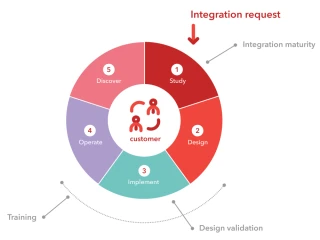
Integration challenges
As a result, companies are faced with several ‘integration challenges’, including
- establishing reliable and secure communication between internal and external systems;
- automating business processes across solutions;
- preserving the ‘speed of innovation’ when IT needs to focus entirely on keeping things running.



/magazine-(1).webp?mode=autocrop&w=580&h=580&attachmenthistoryguid=68d77ebe-238f-4494-a5ee-af9892b408ce&v=&focusX=1733&focusY=399&c=204c263b8de7b41c07aa10c352aac99bdc46c6b8421675573e023ef3992a3cb9)

/s4hana_mirgation_delaware-(1).webp?mode=autocrop&w=580&h=580&attachmenthistoryguid=e0f6b40a-c1f8-4209-830b-6e387b3c8da0&v=&focusX=612&focusY=356&c=c50df90ad4dd37535ef6a69ed56cda6ed42b1042f0aa53a45cf7e9eb2f50eba8)
/AdobeStock_330388781-(1).webp?mode=autocrop&w=580&h=580&attachmenthistoryguid=f3ae1698-fd05-4221-85b2-e8db3e06bfa8&v=&c=63a76ee2058369716f404452d291b763a4cd0eea4c77db4d4193a1bf1c5f2f4b)